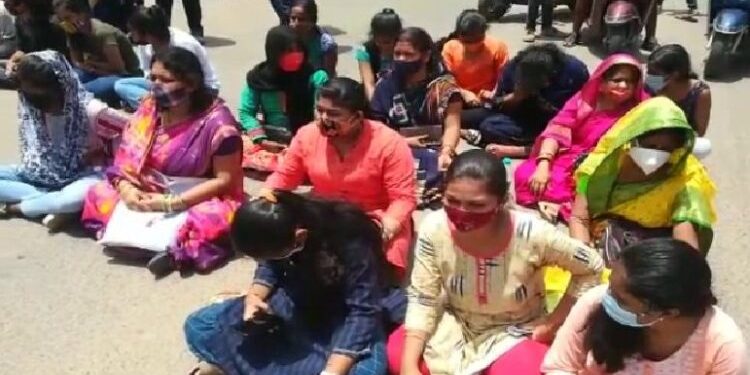Panchanan Dalai
In his essay “Selected Snobberies”, Aldous Huxley opines that there is nothing in the world that modern people are not snobbish of. Had he been alive, he would have certainly incorporated into his list the ‘snobbery of marks’, which has surreptitiously invaded our modern educational mentality. Students, parents, teachers, institutions, even governments, all have fallen into this alluring trap of marks or grades.
The snobbery of marks is a mentality, a social condition, a ‘marks-ism’ that divides ‘haves and have-nots’ of certificate marks. It is not only an educational ailment but, more potentially, a deadly manifestation of mere mathematical psyche of our society. The recent viral videos of reactions and protests of students and parents concerning the matriculation results in Odisha are a wake-up call to this snobbery of learning.
What is frightening is to note how this ‘marks-ism’, the colonial or bourgeois idea of government versus private education, has infected the Odia mentality. The snobbery that private education is better than government education is not only an educational disease but, at the same time, purely antithetical to the long history of Odisha’s glorious agrarian background which has produced outstanding scholars, bureaucrats, doctors, professors, artists, and scientists. I am sure, several best private teachers and students still hail from the same agrarian economy of Odisha. So how is this paradox of government/private hierarchy justified? I think what is best is to work towards a synthetic idea of private and government, rather than promoting a hierarchy of these. This snobbish idea and its epidemic rise in Odisha should, therefore, be seriously probed and mitigated.
It is also a modern hypocrisy to believe that quality education springs from a f(m)ountain of private institutions through the best investment of money. In fact, quality education and capitalism are the antithesis of a sound society and are as different from each other as classical education is different from the modern one. Francis Bacon, one of the founding fathers of modern intellectualism, criticised the rise of uneducated experts in England. “For expert men can execute, and perhaps judge of particulars, one by one; but the general counsels, and the plots and marshalling of affairs, come best from those that are learned.” Our students and parents should be warned of such advancement of learning; that education is not for mastering mere ‘ability’ to survive in a competitive world! To privilege the ‘ability’ of learning is fostering mechanical, slavish, and crude education over the ‘light and sweetness’ of learning. Mahatma Gandhi, Rabindranath Tagore, Swami Vivekananda, and Sri Aurobindo, therefore, espoused syncretic education. As parents, educationists, teachers, and institutions, we should train our students to live in education, not to exist in education. I believe many millennials who carry the T-shirt dictum on their chest – “To live is the rarest thing in the world. Most people exist, that is all” -could distinguish between living and existing in educational system.
It is also petrifying to take cognisance of the ‘insecurity’ and ‘career consternation’ that have engulfed our youngsters. The source of these is as much social as governmental. And learn, how Julius Caesar quit his oratory, when he saw his rivals like Cicero and Catullus excelled in debates than him, and, instead, chose the profession of a soldier and proved himself as an emperor. These examples should nullify the excessive confidence or pessimism that largely define our millennial generation. I believe, it is we, as a community or society, who are responsible for this psychic bombardment on our young minds.
Another fallacy of this snobbery lies in the way young students have learnt the hierarchy or futility of subjects and disciplines. That some disciplines are better than other disciplines is a purely utilitarian conception of education, rooted in the divisive idea of ‘marks-ism’ and monetarism. Snobbery of subjects is yet another blunder meticulously crafted in school classrooms. I think such ideas are not only elitist but also anarchic to our society and culture.
Thirty years ago, it was unimaginable for young learners of Odisha to confront such binary of private and government colleges or universities. How come, then, there is this sudden mushrooming of private institutions and the collateral damage therefrom to Odia mentality? I am sure many, who attended government schools, walked miles of roads on bare feet, studied in makeshift schools, taught by traditional teachers, and, most importantly, considered the next class more important than the past one, would definitely agree with me that the furore over amalgamating more marks is indeed a snobbery of marks! Whether we should accept this snobbery or avoid it is definitely a matterof ‘conscience’.
The writer is Associate Professor, Department of English, Faculty of Arts, Banaras Hindu University.






































